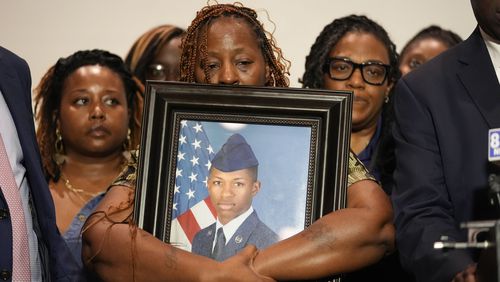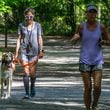You tend to trust someone who’s walked in your shoes, experienced life like you.
And if I had a drug problem, I’d want someone like Deidre Badu to help me. She smoked crack for 15 years. Today, she’s clean, 17 years and counting.
So she knows of what she speaks. It’s rooted in experience, though she has a bachelor’s degree in social work and a master’s with a specialty in nonprofit management. She’s a state-certified substance abuse counselor, too, and works as a clinical director for a transitional house in Atlanta.
In 2006, Badu founded Hindsight 20/20 Inc., a recovery-themed transitional housing program run out of a modest duplex on Lawrenceville’s Ezzard Street. And talk about irony: The duplex used to be Crack Central.
“They’d buy it here,” Badu told me, “then go over there and smoke it.”
Badu contacted me after reading last week’s column about Chase Jones, a 21-year-old man who died from an apparent heroin overdose.
Her comments mirrored those shared by dozens who read the sad tale. That substance abusers, generally, don’t know where to turn for help. That addiction gets hushed up and pushed aside way too often. And that more affordable treatment is needed at the grass-roots level.
In Gwinnett, we raise a ruckus about higher taxes and (suspected) illegal immigrants. When it comes to matters just as germane, we look the other way. The county’s growing homeless population comes to mind. From what Badu and some addicts told me, there ought to be concern about substance abuse, too.
“In Gwinnett, the recovery services are in churches, which is a good thing,” Badu said. “What we need are more self-help recovery groups, and not necessarily NA and AA. With those, you can run people away. Gwinnett could be proactive in addressing this, but I have a feeling it’s going to be reactive.”
At Hindsight, all the usual elements of addiction counseling are in place. The six-month program requires clients to establish goals; attend in-house and outside support group meetings and therapy sessions; work or seek employment; and submit to random drug tests, among other rules.
Here, addicts help each other. It’s called peer-oriented counseling. Those who are further along in recovery — say 90 days as opposed to a newbie — are required to help the new kid on the block find his or her path.
Vickie Edwards had been a crack addict for 15 years before she checked in. She credits Badu with saving her life. Now, besides being Hindsight’s program coordinator, she also mentors female clients.
“Peer to peer, there’s more trust,” Edwards said. “When you have walked in those shoes, there are more similarities than not.”
Despite being “on the road to recovery for years,” Badu still takes one day at a time.
“I have a sponsor to talk to who is clean,” she said, “and who understands the core values of recovery that I go to when I am frustrated and angry. And I have prayer.”
Rick Badie, an Opinion columnist, is based in Gwinnett. Reach him at rbadie@ajc.com or 770-263-3875.
About the Author





